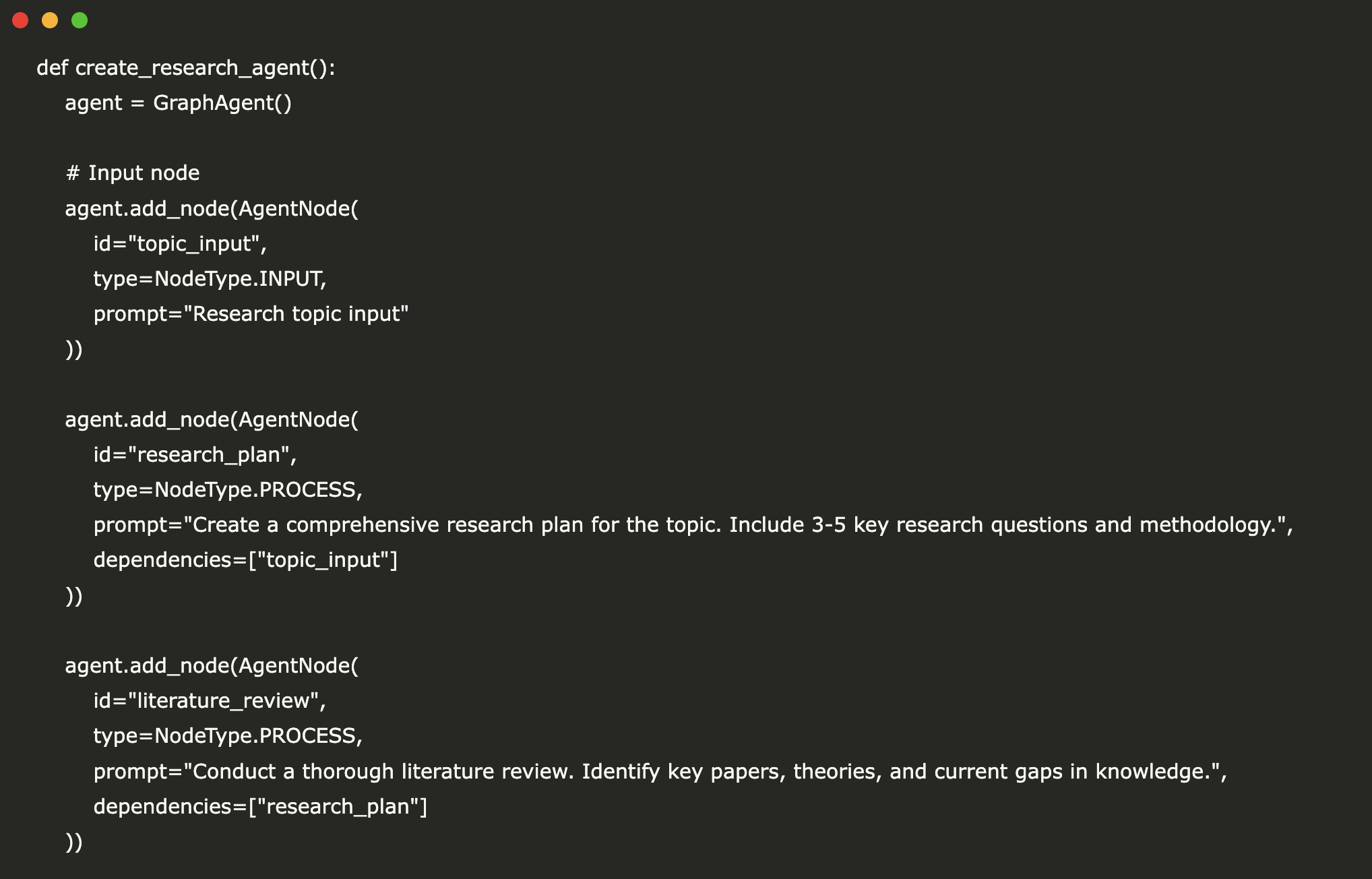
Advancing Automation: A New Graph-Based AI Framework for Complex Tasks
In a recent tutorial published by MarkTechPost, Asif Razzaq outlines the development of a sophisticated Graph Agent framework powered by the Google Gemini API. This innovative approach aims to create intelligent, multi-step agents capable of executing complex tasks through a structured network of interconnected nodes.
Framework Overview
The proposed framework utilizes a graph structure where each node is designated for a specific function. These functions encompass a range of operations including:
- Taking input
- Performing logical processing
- Making decisions
- Producing outputs
By leveraging Python along with the NetworkX library for graph modeling and matplotlib for visualization, the framework is designed to handle intricate reasoning workflows effectively.
Implementation Examples
Razzak emphasizes practical application by presenting two complete examples: a Research Assistant and a Problem Solver. These implementations showcase the framework's ability to navigate and manage complex tasks with efficiency, highlighting its potential for various applications in automation.
Getting Started
To build this framework, users are guided through the installation of essential libraries, including google-generativeai, networkx, and matplotlib. After setting up the environment, the Gemini API is configured using an API key to enhance the content generation capabilities within the agent system.
This tutorial not only serves as a comprehensive guide for developers eager to explore advanced AI frameworks but also reinforces the growing importance of graph-based models in automation and AI-driven solutions.
Rocket Commentary
Asif Razzaq’s exploration of the Graph Agent framework utilizing the Google Gemini API highlights a promising leap in AI's ability to tackle complex tasks through structured reasoning. However, we must remain cautious about the implications of such advancements. While the framework's design allows for sophisticated decision-making and task execution, it is crucial that developers prioritize ethical considerations in AI deployment. As these multi-step agents become more prevalent, ensuring transparency, accountability, and accessibility remains essential to harnessing their transformative potential responsibly. The industry must focus on bridging the gap between advanced AI capabilities and practical applications that genuinely enhance business processes without compromising ethical standards.
Read the Original Article
This summary was created from the original article. Click below to read the full story from the source.
Read Original Article